Member Directory,
1847 - 1922
William Milligan Sloane
Professor of Classics
Centurion, 1878–1928
Jonathan Edgar and Henry Drisler
Richmond, Ohio
Bay Head, New Jersey
Age twenty-seven
Princeton, New Jersey

Archivist’s Notes
Secretary of the Century Association, 1907–1909
Century Memorial
As writer of history and teacher of it, William Milligan Sloane achieved distinction long ago. He taught a full generation of students at Princeton and Columbia; he was President of the American Historical Association and for many years the zealous executive of the Academy of Arts and Letters. French history exercised a particular fascination on his mind, and his work in that domain won for him from the government of France the Legion of Honor and the title of Chevalier. Professor Sloane was a member of the Century for exactly fifty years; only seven other members of the Club have had as long or a longer record and two of these had, like Sloane, been admitted in 1878. During the three-year period from 1907 to 1909 inclusive he was Secretary of the Century, where the memorials of fellow-members to which in those years he applied his descriptive pen and biographical imagination, especially the vivid sketches in which Saint Gaudens, Macdonough, Bishop Potter and Edmund Clarence Stedman live again, are among the pleasing Club remembrances.
To these affiliations there came an interruption, happily temporary, when Germany invaded Belgium in August of 1914. Only a year before, as exchange professor from Columbia, Sloane had spent the winter at the Universities of Berlin and Munich. Understanding the German language perfectly, he reached terms of intimacy with the distinguished men of Germany. The ideas on world-relations, set forth to him by Germans of light and leading during 1912 and 1913, were such as to convince him, when he read the news of August, 1914, that the imputing to the German government of responsibility for the war was erroneous, malicious and unjust. The formal declaration of the German scholars in defense of Germany’s attitude—the names of many warm friends of Sloane were on the list—affected him as it certainly did not affect his American fellow-citizens. He could not believe the reports of outrages in Belgium; probably he was unwise in the warmth with which he made his feelings public.
Every one who lived through those days when Twentieth Century civilization seemed to have disintegrated, when events which belonged to the Thirty Years’ War crowded on one another, when the morning newspaper’s dispatches could not be read without a thrill of mingled horror and indignation, remembers how such differences of judgment cut a line of cleavage even through social intercourse. In a published article of December, 1914, Sloane declared that he was “not pro-this or pro-that or pro-anything except pro-American,” that he only hoped “for an end to these hysterical exhibitions of partisanship.” He spoke his own sincere conviction of the moment, but circumstances had made it too late for a charitable or dispassionate view of the catastrophe in Europe. Even to his intimates, Sloane never spoke of this unhappy disturbance of personal relations, but he retained no obstinacy of opinion as a result of it. The sinking of the “Lusitania,” it is testified by those who were nearest to him, killed every remnant of sympathy that he might have kept for Germany. He never thereafter referred to that country except in terms of the utmost bitterness and never, even after the war, was he willing to visit Germany again or to communicate with his old German friends of 1913. He sent his son to the trenches in France and devoted his own best energies, when America had joined the war, to the cause of food conservation, the Red Cross and the Liberty loans. What was his inmost and ultimate belief regarding responsibility for the war we shall possibly never know.
Alexander Dana Noyes
1929 Century Association Yearbook
Related Members
Member Directory Home-
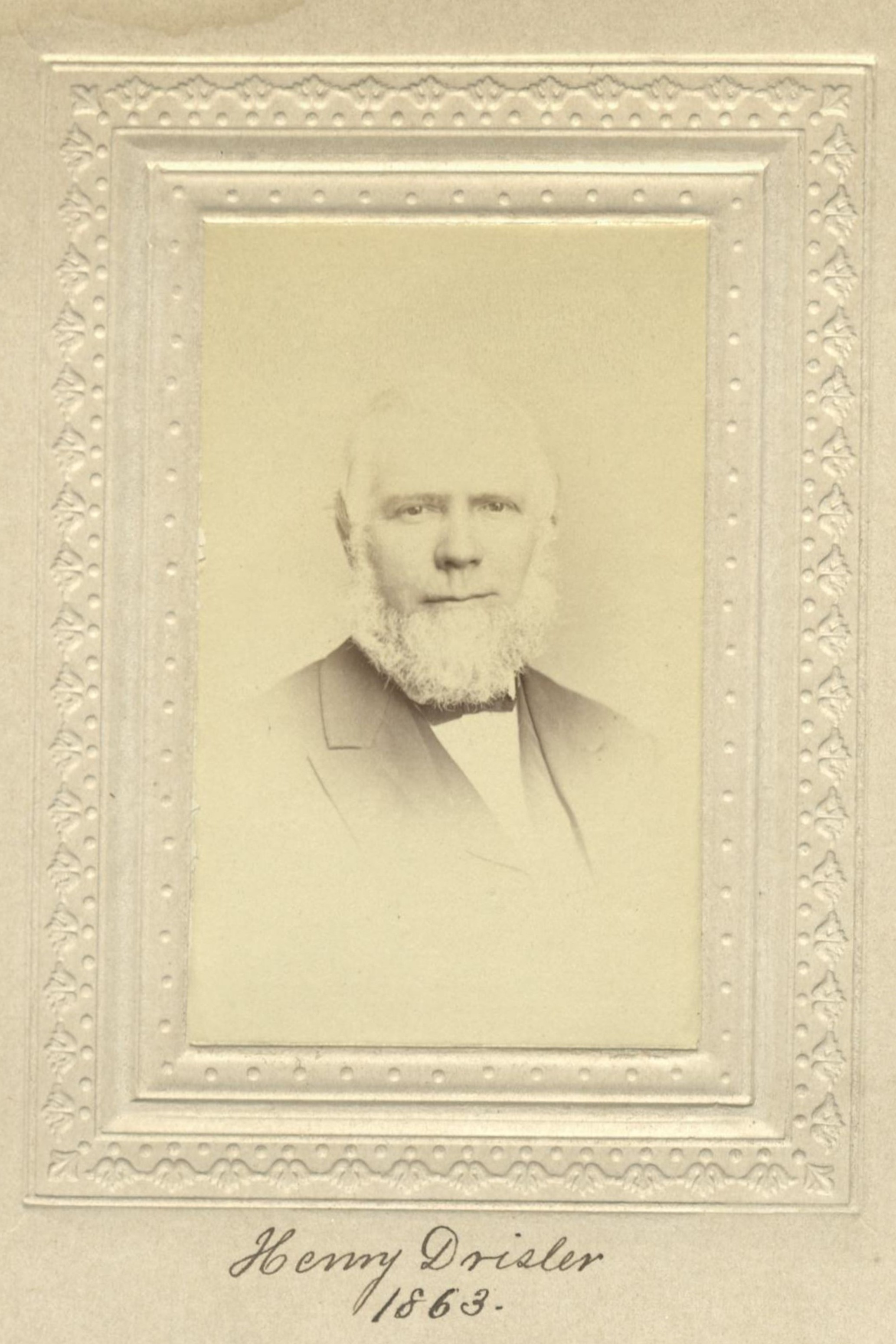 Henry DrislerProfessor of ClassicsCenturion, 1863–1897
Henry DrislerProfessor of ClassicsCenturion, 1863–1897 -
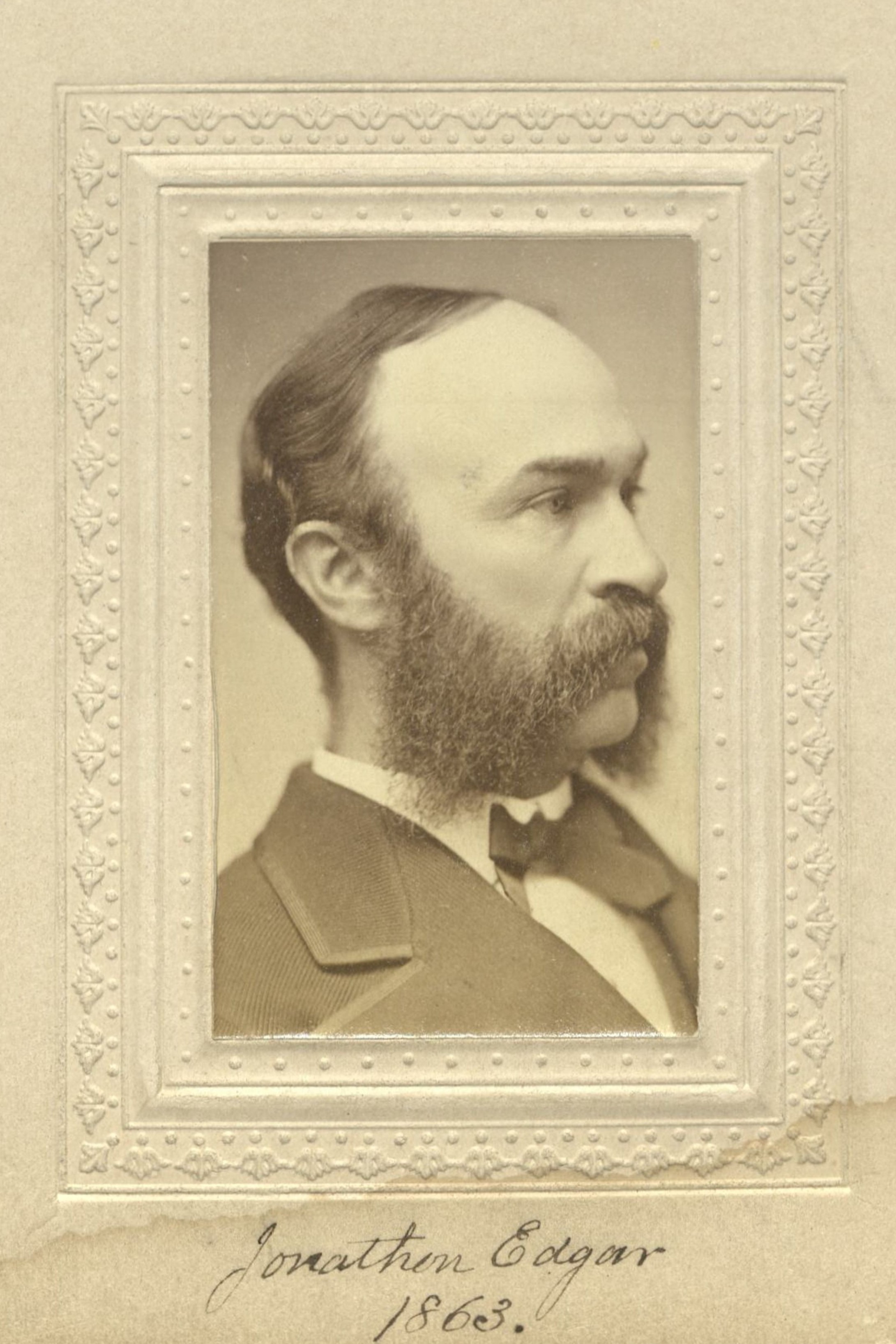 Jonathan EdgarLawyer/PoliticianCenturion, 1863–1879
Jonathan EdgarLawyer/PoliticianCenturion, 1863–1879 -
 Harold GodwinJournalistCenturion, 1914–1931
Harold GodwinJournalistCenturion, 1914–1931 -
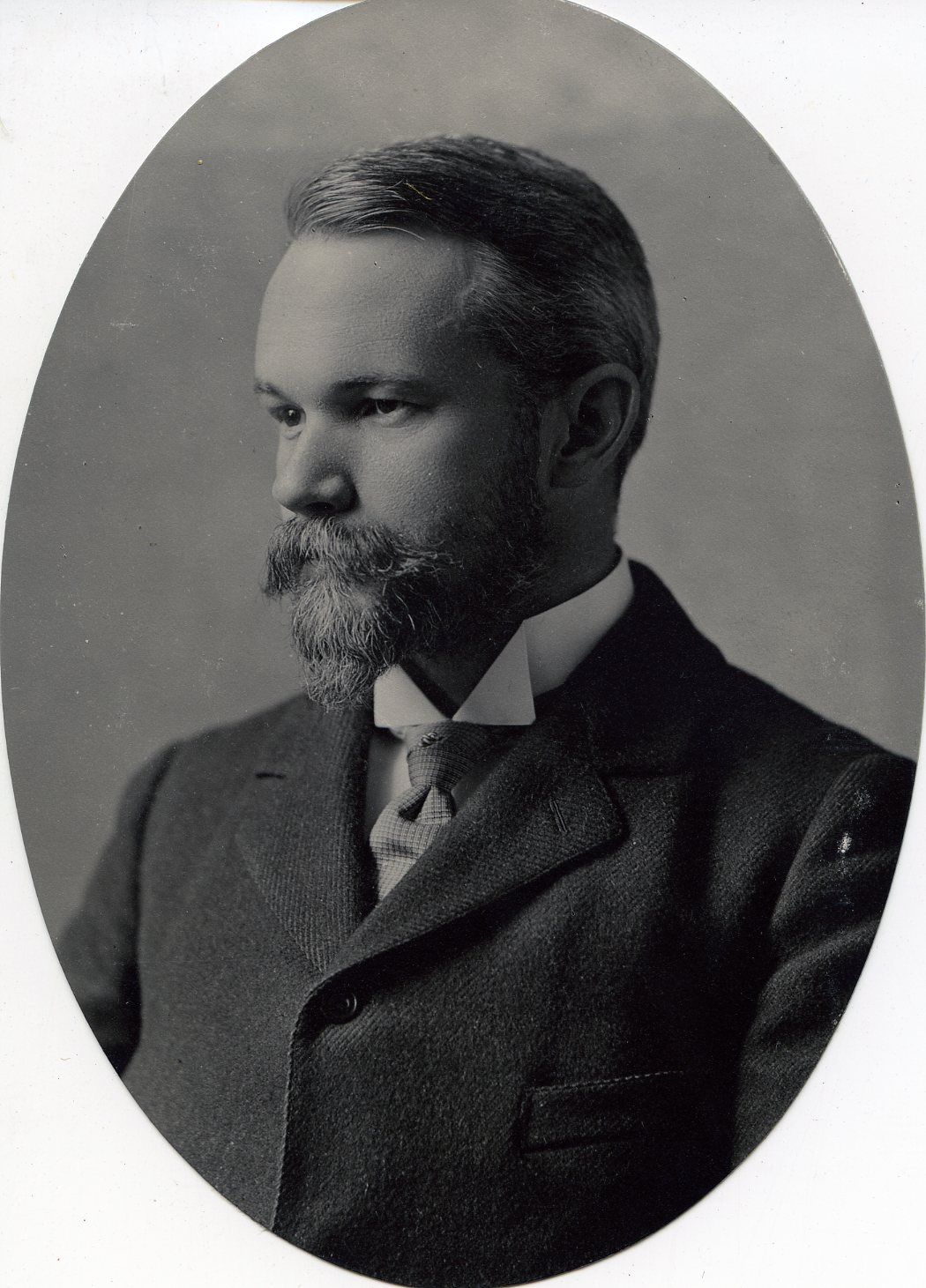 William LibbeyProfessor of Physical GeographyCenturion, 1908–1927
William LibbeyProfessor of Physical GeographyCenturion, 1908–1927 -
 M. Taylor PyneLawyer/PhilanthropoistCenturion, 1890–1921
M. Taylor PyneLawyer/PhilanthropoistCenturion, 1890–1921 -
 George Lansing RaymondAuthor/ProfessorCenturion, 1891–1929
George Lansing RaymondAuthor/ProfessorCenturion, 1891–1929 -
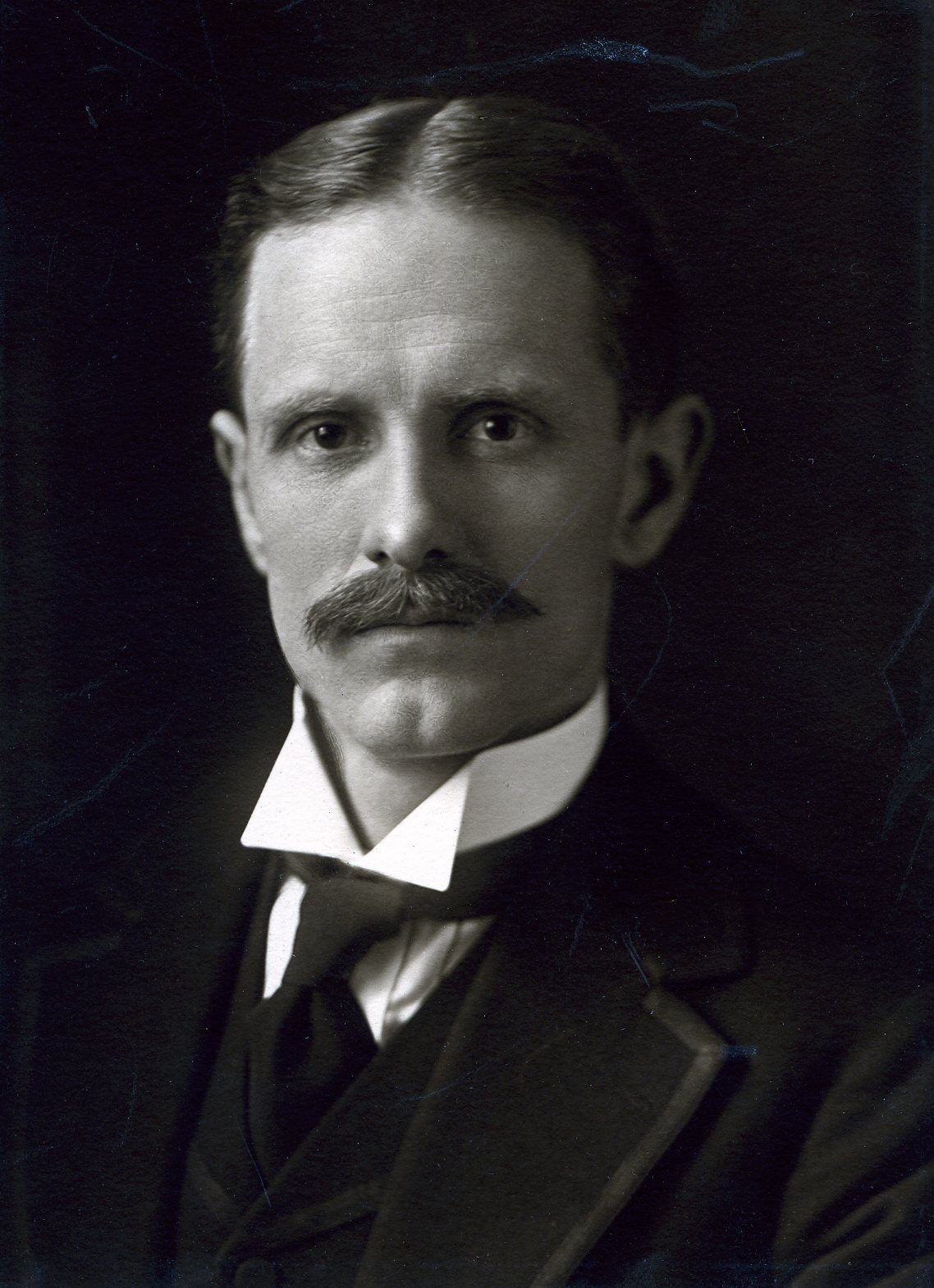 Tertius Van DykeClergymanCenturion, 1920–1958
Tertius Van DykeClergymanCenturion, 1920–1958 -
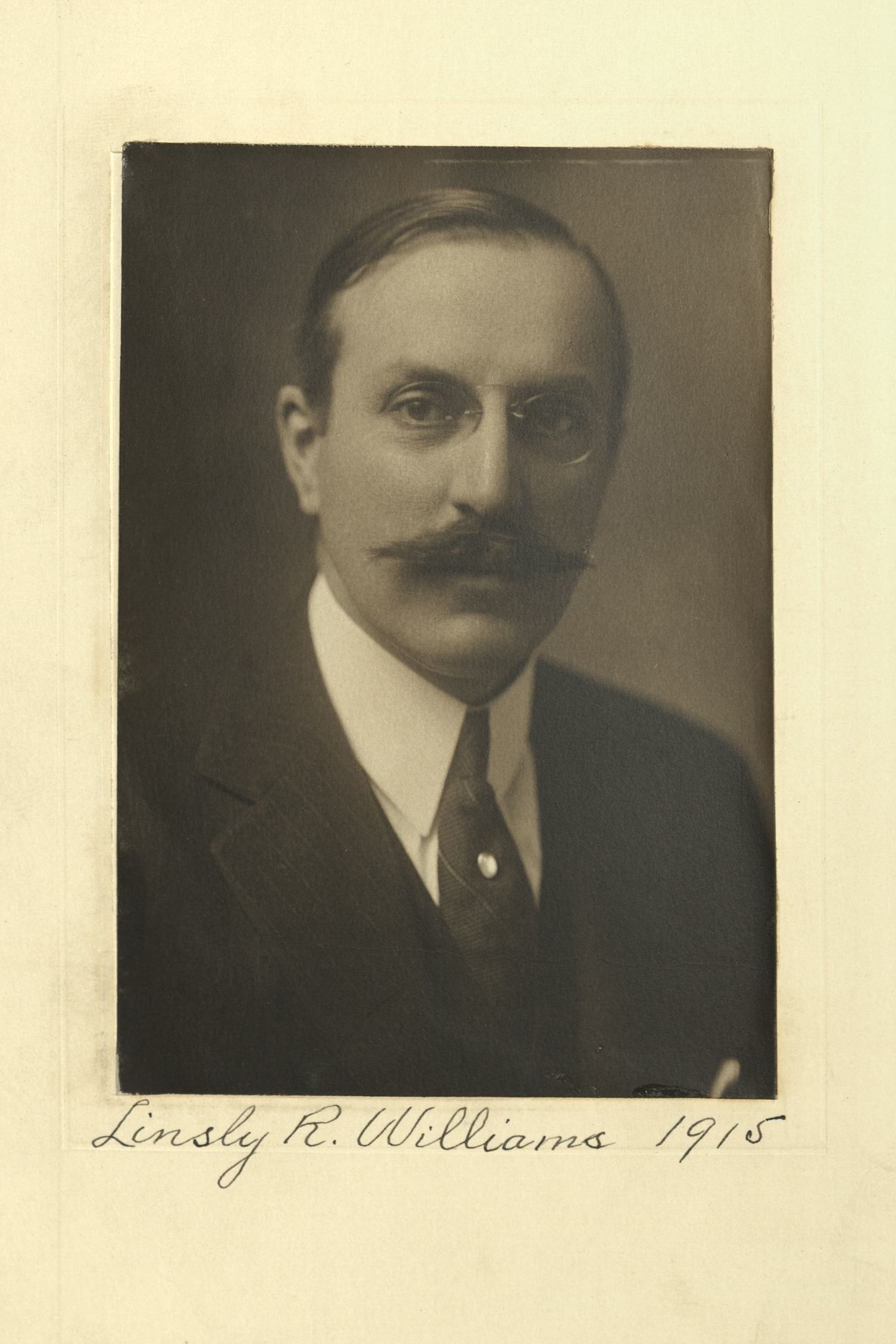 Linsly R. WilliamsPhysicianCenturion, 1915–1934
Linsly R. WilliamsPhysicianCenturion, 1915–1934





